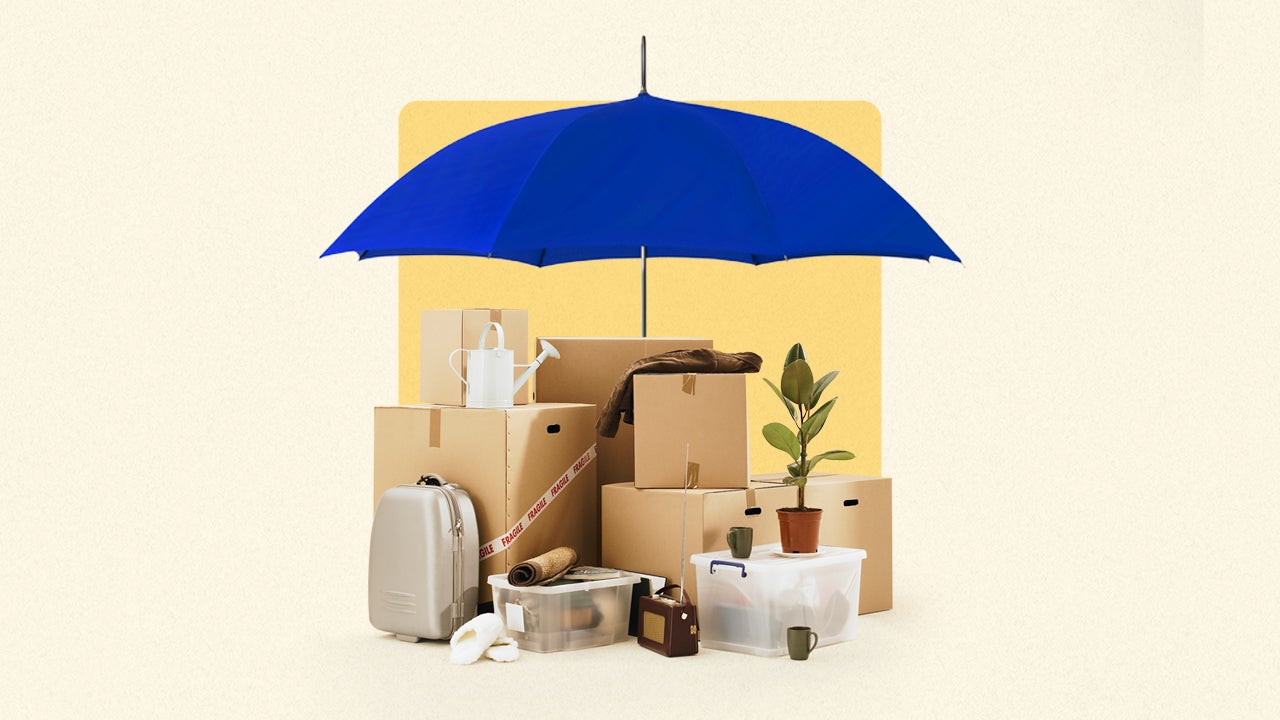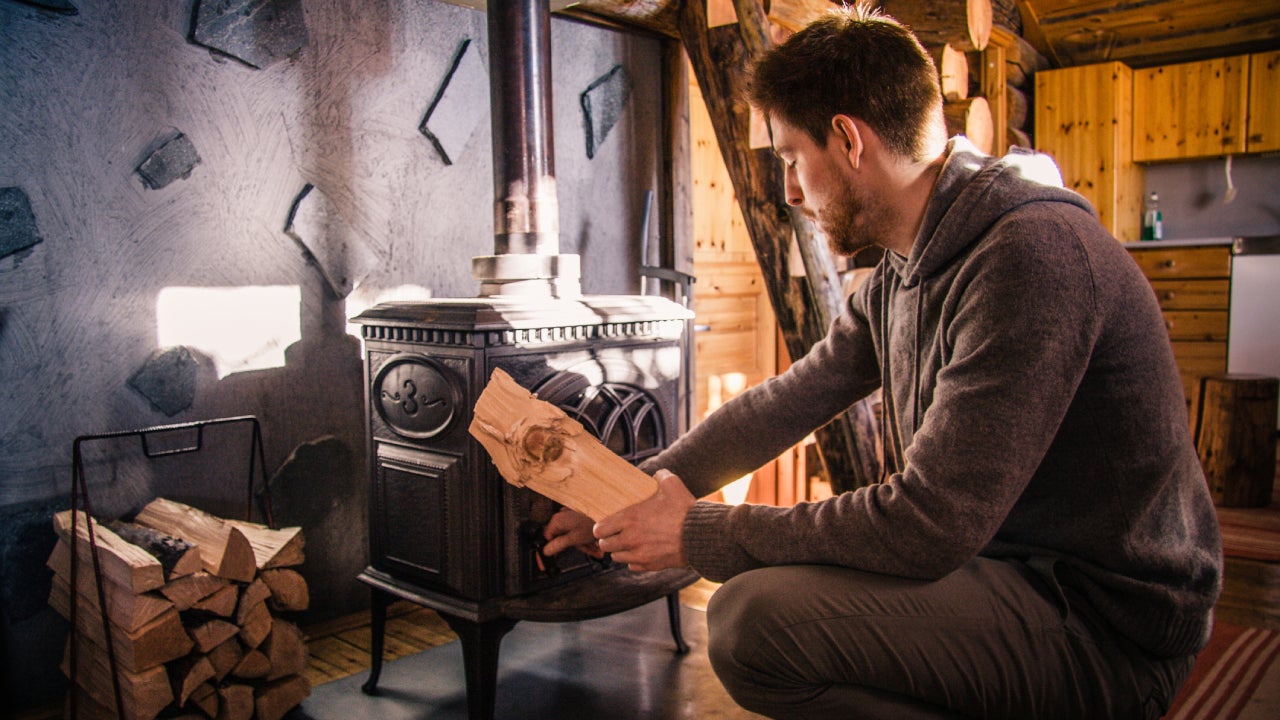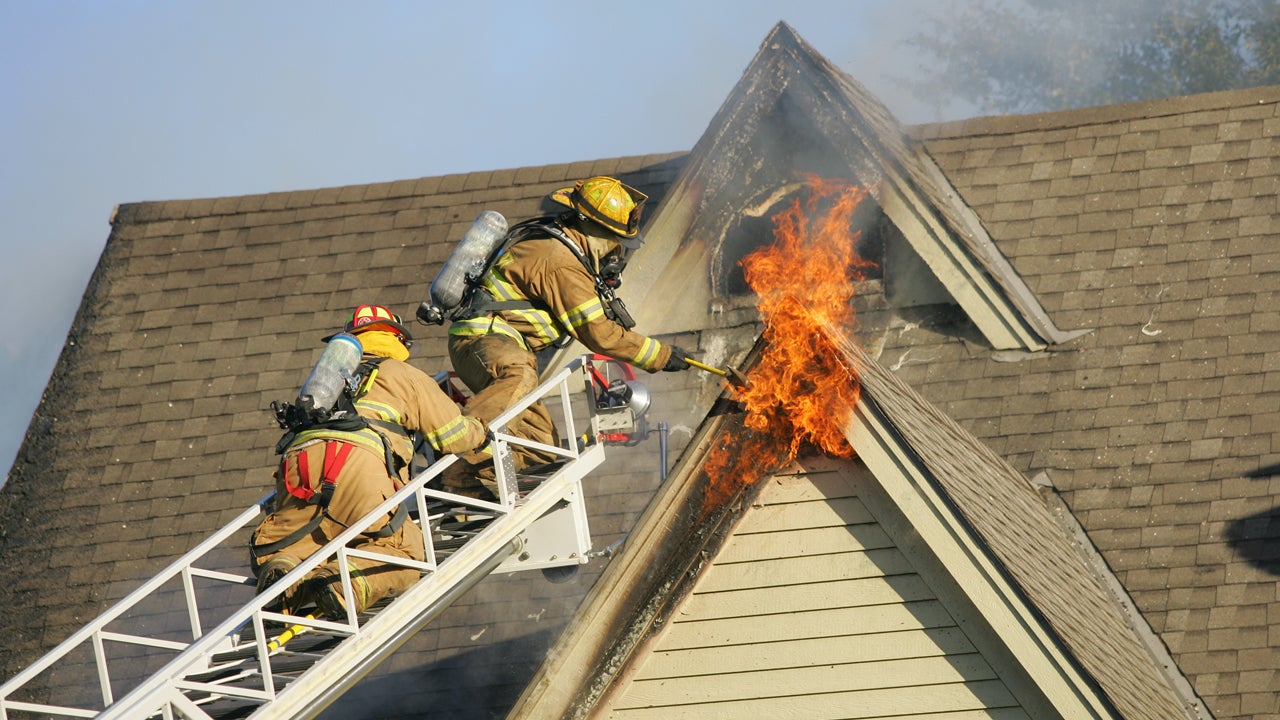Does homeowners insurance cover appliances?

When you pay as much as you do for new appliances, you probably wonder if your appliances are covered by homeowners insurance. The answer depends on the cause of damage. For instance, if a fire or a tornado destroys your home, your appliances are usually covered, but if they’re damaged because of normal wear and tear, they’ll fall under your personal financial responsibility. To ensure you have the appliance coverage you need, you may want to add an equipment breakdown rider to your home insurance policy or consider purchasing a home warranty.
When does homeowners insurance cover appliances?
Personal belongings are covered by the personal property portion of your standard home insurance policy, but whether your home insurance covers appliances depends on the cause of damage. Specifically, the policy will usually only pay out claims for damage caused by named perils. These typically include:
- Fire, lightning or smoke: Your appliances are typically covered if damage results from lightning, volcanoes or fires. This includes damage from smoke, which can affect air circulation systems like forced air heating. Some policies in wildfire-prone regions may not cover damage from wildfires, so you’ll want to double-check your policy details.
- Wind and hail: This includes damage from windstorms, hail and the weight of ice, snow or sleet. For example, if a section of your roof caves in after heavy snowfall and damages your washer and dryer, these appliances would likely be covered as long as the weight of ice and snow is a named peril in your policy. It’s important to note that flood damage is not included under standard HO-3 policies — separate flood insurance is required.
- Explosions: If something inside or outside your home explodes, like an e-bike battery, a propane tank or aircraft, your personal property policy often covers the damage an explosion causes to your appliances.
- Civil commotion, vandalism, malicious mischief or theft: Your appliances are generally financially protected from damage or losses caused by intentional harm or theft by another person. For instance, if someone breaks into your home and damages your appliances while looking for valuables, your policy will usually cover this damage.
- Sudden steam or water discharge: Sudden and accidental water or steam discharge or malfunction of a steam or hot water heating system is normally covered by personal property coverage. However, gradual damage or neglect, such as a slow leak leading to mold, is excluded from standard policies.
- Freezing: Your appliances are generally covered against damage from freezing conditions, such as damage to your plumbing or air systems caused by a burst pipe.
- Power surges: If your appliance isn’t plugged into a surge protector and a sudden artificially generated electrical current overloads the machine, your policy typically covers it. If you have a lot of high-value electronics, consider talking with your agent about your best coverage options.
Learn more: What does homeowners insurance cover?
When does homeowners insurance not cover appliances?
Insurers reserve the right to deny appliance coverage in some cases. Specifically, your policy might have named perils, which means damage to your appliances is only covered if they were damaged by a peril listed on your policy. Before you file a claim, ensure you know the named perils on your policy. Named perils might include:
- Age-related breakdowns: If you’ve had your appliance for a while and it no longer works but wasn’t damaged by a named peril, you’ll probably have to pay for the repair or replacement out-of-pocket.
- Lack of maintenance: Regular maintenance is crucial for appliance longevity. If your appliance damage is caused by a lack of maintenance, your home insurance will not normally cover it. You may want to refer to your appliance owner’s manual to make sure you’re performing the recommended maintenance for each.
- Flooding: Flooding isn’t included in standard home insurance policies, so if your appliances are damaged by a flood or tropical storm, you will need a designated flood insurance policy from a private insurance company or through the National Flood Insurance Program.
- Earthquakes: A standard home insurance policy does not cover damage caused by earthquakes. However, if your appliances are damaged in a fire that occurred after an earthquake, that would likely be covered. Similar to flood insurance, homeowners in earthquake-prone regions can purchase earthquake insurance as an endorsement or standalone policy, depending on their location.
- Sewer backup: If your appliances are damaged by standing sewage that overflows from your home’s sewer line, you likely won’t get help from your home insurance company for repairs unless you purchase a water backup endorsement.
Home insurance for appliances
New appliances can be expensive, so you may want peace of mind knowing that they’re covered. If you’d like your appliances to be covered beyond the named perils listed on your homeowners insurance, you might want to buy home or appliance warranties, equipment breakdown coverage or choose replacement cost value when insuring them.
Home warranty coverage
To be clear, a home warranty is different from an appliance warranty and it’s not home insurance. Instead, a home warranty provides coverage for specific systems in your home, like plumbing, electrical and HVAC. If you have a home warranty, you’ll typically have a service contract with a company that offers regular maintenance.
While you’ll most likely still need a standard home insurance policy, you can also purchase a home warranty. Home warranties typically cost between $20 and $150 per month, depending on how you customize the coverage.
Appliance warranties
Most customers are offered warranties when purchasing appliances. A manufacturer’s warranty simply provides financial protection for a set period of time after you purchase the appliance. For instance, you might get a deal on an appliance that comes with a one-year manufacturer’s warranty. In some cases, you can purchase an extended warranty for longer protection. Before you buy this coverage, it’s worth checking to see if your credit card provides an extended warranty for big purchases, as this is a common perk.
Equipment breakdown coverage
Your insurer may offer equipment breakdown coverage as an add-on option to your home insurance policy. It pays for financial loss caused by appliance breakdown. Unlike standard personal property coverage, mechanical failure and breakdown are covered under this add-on. Not all carriers offer the coverage and the specific home systems covered will vary. Coverage limits usually range from $10,000 to $50,000. If you’re interested in purchasing an equipment breakdown endorsement, you can consult your insurance agent for more details.
ACV vs. RCV
If you want more substantial coverage for your appliances, you might choose RCV for personal property to ensure you’re getting enough coverage to replace your items if they’re destroyed by a covered peril. This may be particularly relevant to homeowners with lots of old appliances who would need to pay a significant amount out of pocket to replace appliances at today’s value after an ACV payout, which factors in depreciation.
Standard HO-3 policies cover personal property on an ACV basis, but may give you the option to select RCV coverage. HO-5 policies are more robust and may already include RCV coverage for personal property. Some home insurance companies like USAA automatically insure your belongings at replacement cost value.
How much home insurance coverage do I need for my appliances?
Personal property coverage typically covers your home’s contents at 50 to 70 percent of your dwelling coverage. You may want to discuss adjusting your coverage limits with your insurance agent based on your home inventory. Having too little personal property coverage could leave you with significant out-of-pocket expenses following a covered loss.
Making a note of how much each appliance is currently worth can help you select appropriate coverage for your items. Be sure to list major appliances along with smaller ones and electronics so that your inventory is comprehensive. Then, you can compare the value of your appliance inventory with the value of your other personal belongings. Check that the amount doesn’t exceed your policy’s personal property limit. If it does, you may want to increase your coverage so all of your appliances and belongings are covered.
Preventative maintenance tips for appliances
Since wear and tear isn’t covered by your homeowners insurance, you might be looking for ways to extend the life of your major appliances. Fortunately, regular maintenance and care can help keep your appliances in good working order. Here are a few tips:
- Clean your appliances regularly: While wiping down an appliances’ exterior is good, it’s important to also upkeep the interior of major appliances like your washing machine, dishwasher and fridge. This can prevent filters from clogging or seals from wearing out. It can also improve the efficiency of the appliance. For instance, cleaning your refrigerator coils or emptying the lint trap on your dryer can help it run smoother.
- Read your appliance owner’s manual: Home cleaning and repair hacks are easy to find online, but they can often void your machine’s warranty if done incorrectly. To ensure you’re properly troubleshooting, read the manual that came with your appliance before cleaning or maintaining the machine.
- Load the appliance properly: Most washing machines and dryers advise you not to fill them past a certain point since it unbalances the appliances, makes the motor work harder and doesn’t clean your items as well. By running smaller, balanced loads, you may be able to extend the life of your machines.
- Inspect valves and hoses: If your appliances develop leaks or struggle to run, you may want to take a look at the hoses, valves and connections. If these are loose, cracked or worn out, a simple replacement or tightening could improve your appliance’s performance. Most water supply hoses should be replaced at least every five years.
- Replace filters regularly: If your home has an HVAC system that uses disposable filters, you may want to set a reminder to replace them every three months (or sooner if they become clogged). Not only will fresh filters improve the flow of air through your home, but your HVAC system won’t have to run as hard.
- Schedule professional repair for problems you can’t fix: Regular maintenance can go a long way in preventing appliance breakdown, but if strange sounds make you suspect a mechanical problem or your machine becomes less efficient or smelly, you may want to get a professional opinion rather than troubleshoot the issue yourself.
Frequently asked questions
Why we ask for feedback Your feedback helps us improve our content and services. It takes less than a minute to complete.
Your responses are anonymous and will only be used for improving our website.
You may also like

What does renters insurance cover?

What is contents insurance in homeowners coverage?

Does homeowners insurance cover wood stoves?

Does homeowners insurance cover fire damage?


